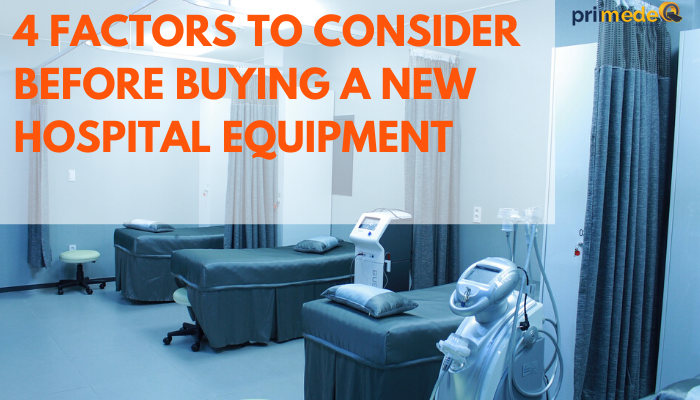
The aftermath of the Coronavirus is a faltering economy trying to come to grips with the situation. In these times of downturn cost-cutting is the norm and the hospital segment is not immune from it. Naturally, new purchases of the medical equipment, if it is not a ventilator will undergo rigorous deliberation.
However, the dilemma is that with the advancement of technology hospitals have to buy new medical equipment for providing quality health care to their patients. Buying healthcare equipment is different from consumer purchases. Many peripherals are attached to it, such as maintenance, user training, and service. All of them cast an impact on financial expenditure. Therefore, before you buy new equipment you need to consider the option of renting health care equipment, particularly if you are trying to fill in requirements arising in a particular season, like infusion pumps and vents and, or a specialty based need.
This is especially true when it comes to accessing the equipment needed for at-risk patient types (geriatric, fall-risk). Predicting the demand for them is difficult and renting health equipment is a practical step.
However, there will be times when the hospital will have to go ahead with a purchase. The points to consider before you make a decision are as follows:
- Recognising the holes in the OEM service contracts
OEM service contracts have holes in it, like loopholes and pigeonholes. Loopholes is the fine print at the bottom of a contract. This fine print has multiple catches from where the OEM can evade providing coverage mentioned in the contract. Pigeonhole service contracts will try to push the healthcare facility to buy an expensive Platinum contract for the equipment. This is unfair on the part of the OEM and the healthcare facility has to shell out more money for this.
You can safeguard yourself from these holes of the OEM by going inhouse. It implies investing in in-house technicians. On the plus side you will have a shorter downtime with them and lower investment.
However, it comes with additional people management hassles which may not be convenient for smaller hospital setups.
- Extending warranties with the OEMs
Extending warranties with the OEMS is advisable. While extending your warranties with OEMs you should try to get included software updates, service keys and training in the contract. This puts the hospital in the driver’s seat while managing equipment.
- Are you aware of the equipment extras?
While it is desirable to have the latest model of the medical device which supports the needs of tomorrow it is sensible to stick to the basic model. It costs less to fulfil the need and does not cost a hole in your budget. If you do your homework and not get swayed by the hype you can make a smart purchase for your hospital. Like when you are buying an ultrasound for your OB / GYN practice do consider the cost of the transducers involved.
- Save money by opting for refurbished or used medical equipment
The benefits are many. You save money by getting a newer model of healthcare equipment at a fraction of its cost. It sounds tempting. Before you make the decision of purchasing the particular equipment, you have to consider the peripherals, such as installation, servicing, and the most difficult one, maintenance.
If you are wondering where to get used hospital equipment, the place to go is online. Buying second-hand medical equipment allows you to stay up to your budget and upgrade the technology in one go. However, installation, maintenance, and servicing of capital equipment can be a challenge with second-hand medical equipment.
PrimedeQ solves all your worries. They can get your equipment delivered, installed, serviced and you can even outsource the maintenance to them. No need to bother about the lengthy contracts of OEMS, their qualified technicians are willing to do the heavy grunt work of maintaining your equipment so that you can concentrate on patient care. PrimedeQ also has its Asset Maintenance Services (AMS) and or shared Bio-Medical Engineering resources to tackle the maintenance concerns. It is quite useful for small and mid-size hospitals.
